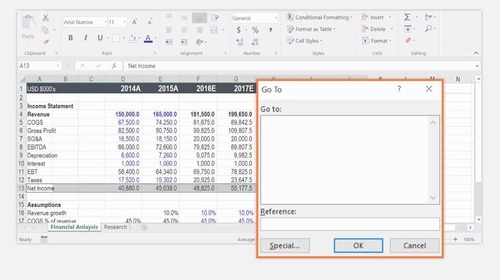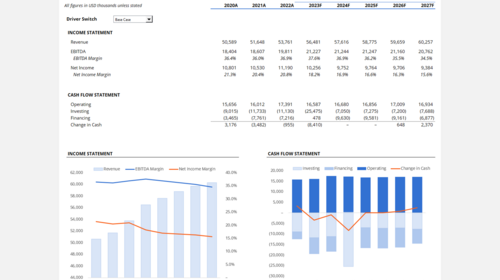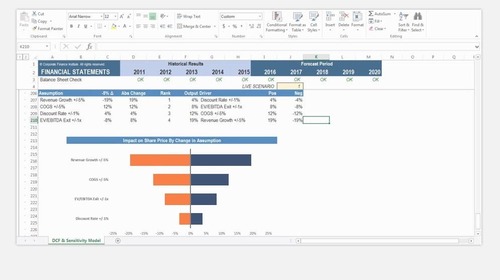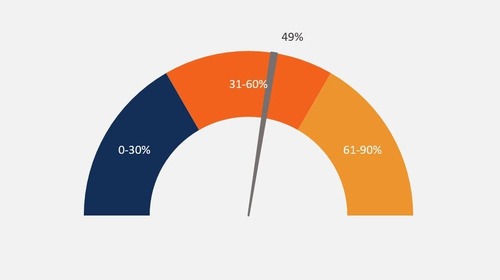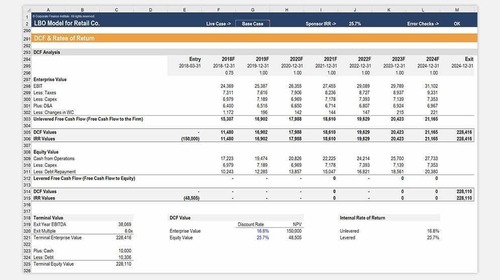- What Does an Investment Bank Do?
- What Does an Investment Banking Analyst Do?
- Analysts vs Associates
- Investment Banking Analyst Working Hours
- Investment Banking Compensation
- Investment Banking Exit Opportunities
- Investment Banking Work by Division – Industry Group
- Investment Banking Work by Division – Product Group
- Necessary Technical Skills to Becoming an Investment Banking Analyst
- Constructing comprehensive financial models to evaluate businesses and transactions
- Updating PowerPoint presentations
- Industry and Market Analysis
- Investment Banking Analysts in Mergers and Acquisitions (M&A)
Investment Banking Analyst Job Description, Hours, & Salary
What Does an Investment Bank Do?

Investment banking is one of the most desirable jobs in finance and competition for these jobs is fierce. At a high level, investment banks advise companies interested in selling themselves or in acquiring other companies, as well as on when and how to issue capital, typically in the form of debt or equity.
Basically, investment bankers work with company management to market the company for a sale, advise the company on potential acquisition targets, and recommend terms and timing on capital raises.
Key Highlights
- An investment banking analyst is one of the most desired, and lucrative, entry-level jobs in finance.
- Investment banking analysts support senior bankers who advise companies on mergers and acquisitions and capital market opportunities.
- An investment banking analyst must be skilled in financial modeling and PowerPoint design, and be able to work long hours in a demanding environment.
- However, the rewards, both in compensation and opportunities, are extremely high.
What Does an Investment Banking Analyst Do?
Investment banking analysts are entry-level investment bankers and are expected to broadly support senior investment bankers in winning client mandates (working on pitches) and creating deliverables on mandates the bank has already won.
Much of the work might be mundane: updating PowerPoint presentations and other administrative tasks. However, landing a role at an investment bank is considered a tremendous launching point to a solid career in finance, potentially leading to very lucrative exit opportunities.
Analysts vs Associates
Both analysts and associates are classified as entry-level jobs at an investment bank. However, associates occupy a slightly higher rank on the banking ladder, usually having completed an MBA or having greater financial experience.
Generally, analysts are hired as recent graduates from top-tier schools. Analysts can progress to associate positions within three years; however, analysts usually leave the bank after a couple of years to first pursue an MBA or join a buy side team.
So why do investment banking analysts only stick around for a couple of years? A big reason is the work hours: it’s a lot!
Investment Banking Analyst Working Hours
Investment banking analysts work extremely long hours: 70 to 80 hours each week (or more, depending on the deal pipeline). However, analysts are usually required to be available almost the entire day, just in case there are last-second changes to a project or deliverable.
A typical day will begin around 9 or 10 in the morning, with analysts usually staying past midnight based on the workload and staffing requirements. There is also usually some weekend work, although these are not typically as busy as a weekday, depending upon whether there is a “live deal” or not.
While some investment banks are trying to allow analysts to have a better work-life balance through “protected weekends” and mandatory vacation days, the hours can still be quite daunting.
Investment Banking Compensation
In return for all of those hours, an investment banking analyst is probably one of the most highly paid roles for a new college graduate. With both a salary and a large bonus structure, analysts should easily make six figures in their first year, and the salary goes up with more experience.
In the United States, base salaries for analysts at large investment banks will be over $100,000 per year. A bonus ranges from half of the analyst’s base salary to one times the base salary, making an all-in comp of $150,000 to $200,000.
Investment Banking Exit Opportunities
Having an investment banking background can lead to very lucrative exit opportunities. As discussed previously, analysts will typically leave an investment bank after a couple of years to pursue an MBA or get a job on the buy side.
Private equity is a common exit path for investment bankers, given the focus on working on mergers and acquisitions (M&A) and leveraged buyout (LBO) transactions. PE firms acquire control of other companies, usually by utilizing a lot of debt to help fund the deal. A junior-level employee at a PE firm will be involved in deal sourcing, detailed financial modeling, and performing due diligence.
Corporate development is another career path that investment banking analysts might consider. Corporate development is basically doing in-house M&A work for a corporation like Google or Exxon.
Joining a hedge fund is another potential exit opportunity. However, the focus of a hedge fund is to take small positions in publicly traded companies, not acquire control as a private equity firm would do. The work can also be quite different from investment banking. At a hedge fund, the analyst would be focused on analysis and research instead of highly detailed modeling and deal oversight.
Investment Banking Work by Division – Industry Group
Almost every investment bank divides its workforce into working groups based on a certain industry, for example, oil and gas or technology and media. Industry groups (also known as coverage groups) work on getting new customers and servicing existing customers, all of whom will be in the designated industry.
As an investment banking analyst in an industry group, you may be exposed to both capital markets and transaction advisory deals, depending on the investment bank. You will also really learn an industry in-depth and be able to create detailed operational models.
Investment Banking Work by Division – Product Group
In contrast to industry groups, some investment banks are organized by product, with some product groups listed below:
- Mergers and acquisitions
- Debt capital markets (DCM)
- Equity capital markets (ECM)
- Leveraged finance (LevFin)
Therefore, if you are in the mergers and acquisitions group, you will only work on mergers and acquisitions, across different industries. In the leveraged finance team, you will work on LBOs.
In these groups, you will get to know a lot about different transaction types but probably won’t obtain detailed industry knowledge compared to an industry-group banker.
Necessary Technical Skills to Becoming an Investment Banking Analyst
As part of becoming an investment banking analyst, you will receive a comprehensive training program organized by the bank. As part of this, you will acquire various technical skills designed to make you role-ready.
Constructing comprehensive financial models to evaluate businesses and transactions
One of the key skills an investment banking analyst must master is building financial models and applying different valuation methodologies.
A financial model forecasts a business’s financial performance into the future. The forecast is typically based on the company’s historical performance and assumptions about the future and requires preparing an income statement, balance sheet, cash flow statement, and supporting schedules (known as a three-statement model).
There are three main valuation techniques used by investment bankers to value companies: (1) DCF analysis, (2) comparable company analysis, and (3) precedent transactions. Additionally, an LBO analysis may also be used to determine the price a company may be acquired in a highly leveraged transaction.
Generally, precedent transactions will result in the highest valuation, since the acquisition of a controlling interest in a company must usually be at a premium to the company’s current stock price.
LBO valuations will generally result in the lowest valuation. Since LBOs use a lot of debt, these can be quite risky resulting in a higher cost of capital. Discounting cash flows at a high cost of capital will result in a lower valuation.
Updating PowerPoint presentations
Mastering PowerPoint effectively can really help an investment banking analyst. A lot of analyst work will be in PowerPoint, so learning this program and its shortcuts can drastically increase an analyst’s productivity.
Industry and Market Analysis
Investment banking analysts are often responsible for industry and market analysis updates that are used in pitchbooks and distributed to the investment banking team. This analysis helps to understand industry trends, as well as a company’s position relative to other companies in the industry. It helps bankers identify both opportunities and threats, which can be used to pitch work to clients.

Investment Banking Analysts in Mergers and Acquisitions (M&A)
Investment banking analysts are heavily involved in analyzing mergers and acquisitions, as well as the overall process. The M&A process has many steps and can often take anywhere from 6 months to several years to complete.
One of the most complicated steps in the M&A process is properly structuring the deal. There are many factors to be considered, such as antitrust laws, securities regulations, corporate law, rival bidders, tax implications, accounting issues, market conditions, forms of financing, and specific negotiation points in the M&A deal itself.
While investment banking analysts aren’t involved in deal structuring itself, they may update important transaction documents like the Term Sheet (used for raising money) and the Letter of Intent (LOI), which lays out the basic terms of the proposed deal. An analyst is also involved in other aspects of a transaction, including the following:
- Transaction documents – Preparing deal documents such as a confidential information memorandum (CIM), investment teaser, term sheet, confidentiality agreement, building a data room, and much more.
- Relationship management – Working with existing clients to successfully close a deal and make sure clients are happy with the service being provided.
Additional Resources
Thank you for reading CFI’s overview of Investment Banking Analysts and the type of work analysts engage in. CFI is the official global provider of certification courses for aspiring investment banking professionals. To learn more about career paths and how to break into investment banking, please see these additional resources:
Create a free account to unlock this Template
Access and download collection of free Templates to help power your productivity and performance.
Already have an account? Log in
Supercharge your skills with Premium Templates
Take your learning and productivity to the next level with our Premium Templates.
Upgrading to a paid membership gives you access to our extensive collection of plug-and-play Templates designed to power your performance—as well as CFI's full course catalog and accredited Certification Programs.
Already have a Self-Study or Full-Immersion membership? Log in
Access Exclusive Templates
Gain unlimited access to more than 250 productivity Templates, CFI's full course catalog and accredited Certification Programs, hundreds of resources, expert reviews and support, the chance to work with real-world finance and research tools, and more.
Already have a Full-Immersion membership? Log in
